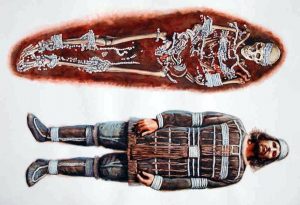 Human ancestors may have seen the risks of inbreeding and devised complex social structures to avoid them from past 30,000 years ago. This incident could be the example of survival of some hominin species when others didn’t survive and died.
Human ancestors may have seen the risks of inbreeding and devised complex social structures to avoid them from past 30,000 years ago. This incident could be the example of survival of some hominin species when others didn’t survive and died.
How the origin of humanity began is the most mysterious part of human history even today when humans are going towards the future at full speed. As per the overall study about the origin and evolution of the humans, there are many gaps which are needed to be filled to get the full knowledge of how the ancestor of humans come into existence.
A study published in the journal ‘Science’ shows that human ancestors may have taken the actions to sustain in the race of existence, 34,000 years ago. The team of experts studied the genomes of various anatomically improved human remains which found in Sunghir, Russia and discovered preferably impressive modern acts from these ancient humans.
To avoid the process named inbreeding the ancient humans from the Upper Paleolithic period intentionally explored the spouses from other social groups people were connected to, as shown by the study. The early humans also had the rituals, rules, and celebrations much alike the modern human like the grave food in the funeral places is the example of it.
According to the study, the relics of one adult male and the incomplete tailings of another adult plus two remains of other two younger selves, which shows that all of them once lived at the same site. After studying the genetic information provided by the remains, the researchers found out that all the individuals were not related to each other. Also. A femur bone found at the site which has not belonged to any blood relation of that individual.
Eske Willerslev who is the professor of the University of Copenhagen and St. John’s College, Cambridge. He is also the senior author of the study said that what is the mean that the early humans who lived in the small groups also realized the importance of avoiding inbreeding, the data study has suggested that this matter was getting avoided purposely.
While comparing the Neanderthal debris from 50,000 years which is the result of the ignorance of the harms of inbreeding. As per the researchers, the reason behind this could be the Neanderthal’s place where they lived could be isolated, so they didn’t have the choice of choosing other partners.
The recent study suggests that the early human’s act of avoiding the inbreeding could be the reason of survival of cavemen (hominids) which later turned into modern humans, despite other hominid species like Neanderthals died ultimately.




